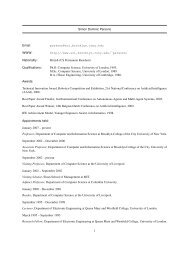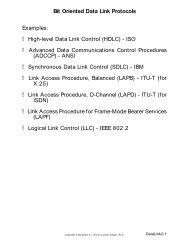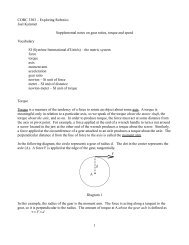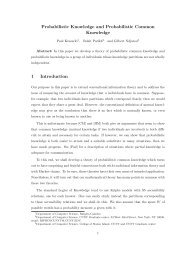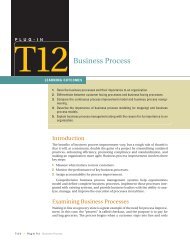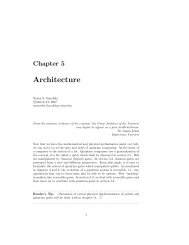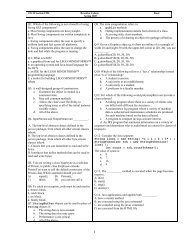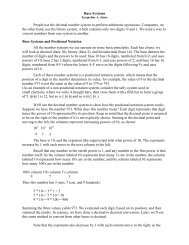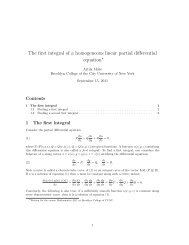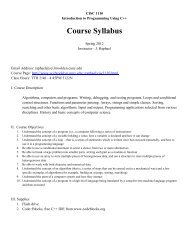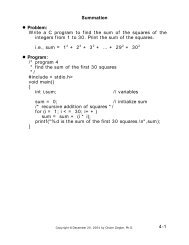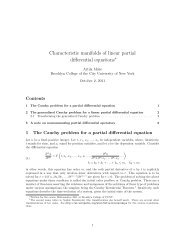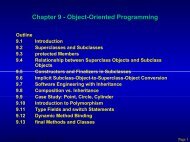*302 Greig and Others v Insole and Others 1977 G. No. 22461977 J ...
*302 Greig and Others v Insole and Others 1977 G. No. 22461977 J ...
*302 Greig and Others v Insole and Others 1977 G. No. 22461977 J ...
You also want an ePaper? Increase the reach of your titles
YUMPU automatically turns print PDFs into web optimized ePapers that Google loves.
[1978] 1 W.L.R. 302 Page 22<br />
[1978] 1 W.L.R. 302 [1978] 3 All E.R. 449 (1978) 122 S.J. 162 [1978] 1 W.L.R. 302 [1978] 3 All E.R. 449 (1978)<br />
122 S.J. 162<br />
(Cite as: [1978] 1 W.L.R. 302)<br />
expressly limits the operation of such obligations to<br />
the respective period of each “tour.” Likewise,<br />
while clause 5 obliges the player, if directed by the<br />
promoter, to participate as a player in any series of<br />
matches outside Australia which may be promoted<br />
<strong>and</strong> conducted by the promoter during the term, it<br />
leaves the promoter free to promote or not to promote<br />
a series of matches outside Australia as he<br />
pleases. Clause 6 (a) entitles the player to receive a<br />
stated sum payable by three stated instalments for<br />
his participation in each “tour” in Australia, the<br />
first to be payable on the date of the contract; but,<br />
once again, neither that sub-clause nor the immediately<br />
succeeding clause 6 (b), which defines the<br />
rights of the player to remuneration in respect of<br />
“tours” outside Australia, in terms imposes any obligation<br />
on the promoter to arrange any “tour”<br />
whatever, whether inside or outside Australia.<br />
In the result, the defendants contended, the contracts<br />
in such form on their true construction really<br />
do no more than confer on the promoter the option<br />
to call on the player to provide his services for one<br />
or more “tours” on the stated terms as to remuneration<br />
<strong>and</strong> otherwise, if, but only if, the promoter sees<br />
fit to arrange one or more “tours.” If the promoter<br />
does not so see fit, so it was submitted, the player is<br />
left entirely without rights or remedies <strong>and</strong> indeed<br />
is bound to repay the first instalment of his remuneration<br />
paid to him on the signing of the contract.<br />
The player, however, on this construction, for the<br />
whole of the term of the contract is left subject to<br />
the full force of the restrictive provisions contained<br />
in clause 3 (b) of the contract, in particular those of<br />
sub-clause (i), which preclude him from playing in<br />
any other cricket match without the promoter's<br />
written consent.<br />
Such being their construction of the players'<br />
contracts with World Series Cricket, the defendants<br />
submitted that the contracts are on their face unduly<br />
restrictive, having regard to (i) their likely duration,<br />
(ii) the right to assign given to the promoter by<br />
clause 10, which made it impossible to assume that<br />
other persons for the time being holding the benefit<br />
of the contract would always act reasonably; (iii)<br />
the fact that the promoter was not bound to promote<br />
any tour at all; (iv) the absence of any provision entitling<br />
the players to terminate the contracts. The<br />
defendants relied on the decision of the<br />
House of Lords in Instone v. A. Schroeder Music<br />
Publishing Co. Ltd. [1974] 1 W.L.R. 1308 ,<br />
in which an agreement between a song writer aged<br />
21 <strong>and</strong> music publishers was held contrary to public<br />
policy <strong>and</strong> void, as being in unreasonable restraint<br />
of trade, substantially on four grounds very similar,<br />
mutatis mut<strong>and</strong>is, to those just mentioned.<br />
I accept the defendants' further submission<br />
that the appropriate time to consider the validity of<br />
the players' contracts is at the date of their signature<br />
<strong>and</strong> that it is not legitimate to construe them by reference<br />
to the way in which the parties thereto have<br />
acted under them, for example, subsequent statements<br />
by Mr. Packer as to the manner in which he<br />
intended to operate them: see Russell v. Amalgamated<br />
Society of Carpenters <strong>and</strong> Joiners [1910]<br />
1 K.B. 506 , 522, per Farwell<br />
L.J. If I accepted their construction of the contracts,<br />
I would also see considerable force in their submission<br />
that the contracts were void, in as much as<br />
they would on this footing subject the players to the<br />
theoretical risk of their cricketing talents being sterilised<br />
for the whole term of the contracts, without<br />
any *326 right to monetary compensation.<br />
Possibly even such an apparently one-sided<br />
agreement could be justified on particular facts, but<br />
I would think this difficult.<br />
However, without purporting to decide the<br />
point as between the promoter <strong>and</strong> the players who<br />
are not parties to these proceedings, I do not accept<br />
the defendants' basic construction of the contracts<br />
for this reason. A number of authorities set out in<br />
Halsbury's Laws of Engl<strong>and</strong> , 4th ed.,<br />
vol. 16 (1976), p. 356, para. 557, illustrate that,<br />
where a contract of employment by its terms imposes<br />
on an employee a binding obligation to work,<br />
without expressly imposing on the employer a corresponding<br />
obligation to provide work, the court<br />
© 2011 Thomson Reuters.



